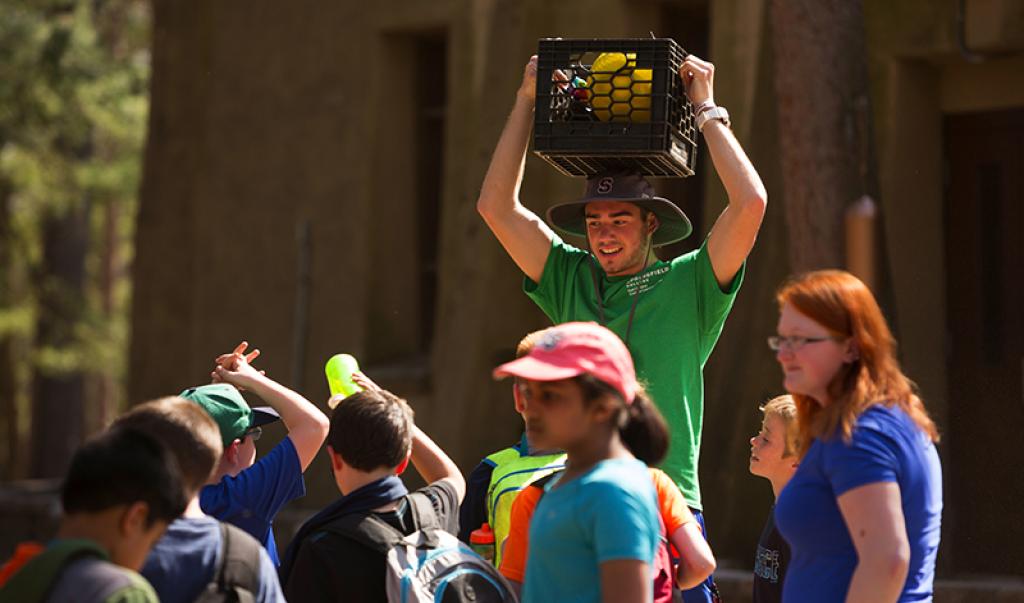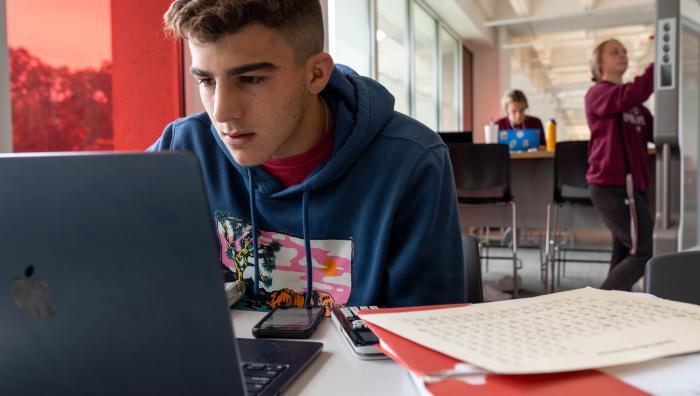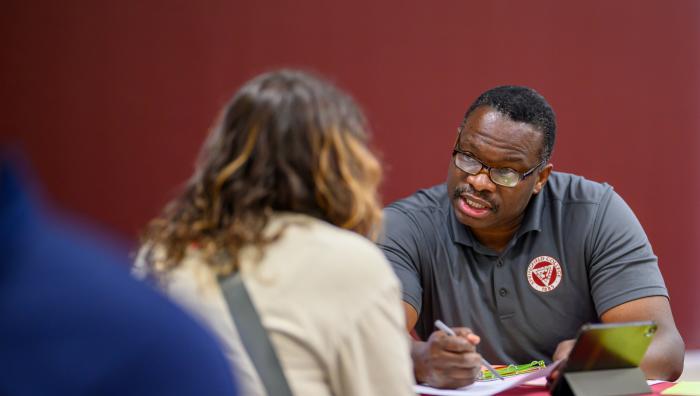Recreation Industries and Therapeutic Recreation
Bachelor of Science
| About This Program | |
|---|---|
| Program Contact | |
|
Review our admissions requirements |
|
|
Recreation Management Accreditation
Accredited by the Council on Accreditation of Parks, Recreation, Tourism, and Related Professions (COAPRT). Students in this program are eligible to sit for the Certified Park and Recreation Professional (CPRP) certification exam as early as their final semester on campus. |
|
Curriculum and Delivery
|
|
Graduate Success and Careers
|
|
| Paying for Your Education | |
|
Upcoming Events
Check back soon for upcoming events! |
|
|
Like us on Facebook |
|

Create Engaging Activities.
The Recreation Industries and Therapeutic Recreation: Recreation Professional Studies program at Springfield College prepares students with the knowledge, skills, and abilities needed to succeed as recreation professionals in a variety of community, wellness, and nonprofit settings. Originally established in 1946, graduates from our program have gone on to be leaders in nonprofit organizations like the YMCA, hospitals and nursing home settings, camps and outdoor recreation businesses, and community recreation agencies.
As part of the Recreation Professional Studies concentration, students would choose between a Therapeutic Recreation or Recreation Coordinator track. Despite the concentration chosen, all students learn about agency operations and strategic management along with how to design and facilitate recreation programs, key skills needed for positions in therapeutic recreation, parks and recreation, outdoor recreation, and youth-serving organizations. Our ability to blend our courses with theoretical knowledge and practical experience has enabled us to prepare the next generation of leaders in our industries.
Our Recreation Industries and Therapeutic Recreation students attended the national Radically Rural conference in Keene, NH in September 2024. The students attended, with Scott Woodaman from Y-Club, to both learn and present on ways recreation can positively impact rural communities.



